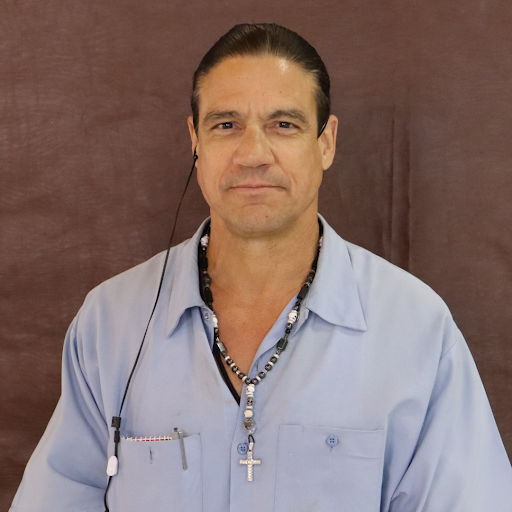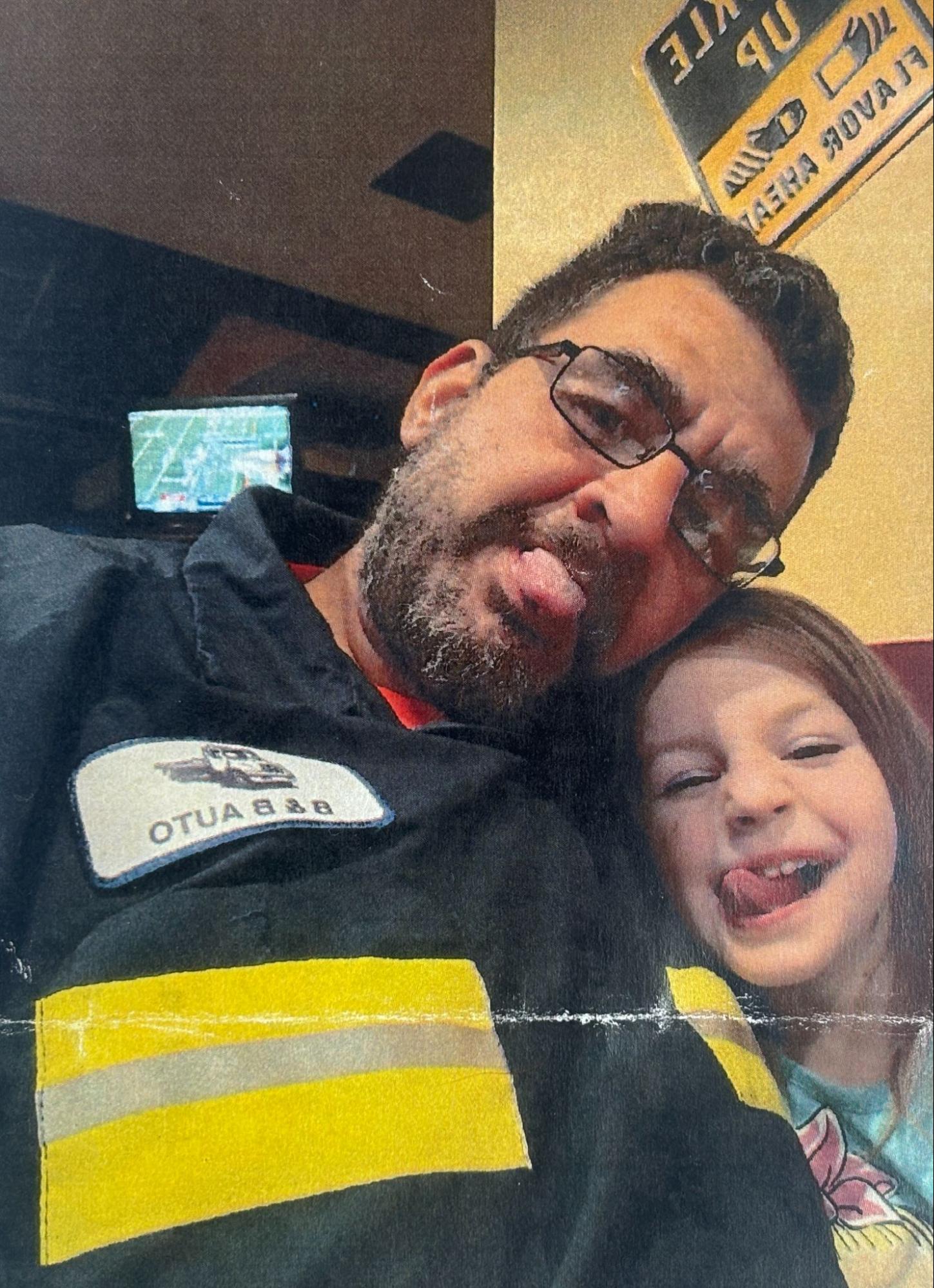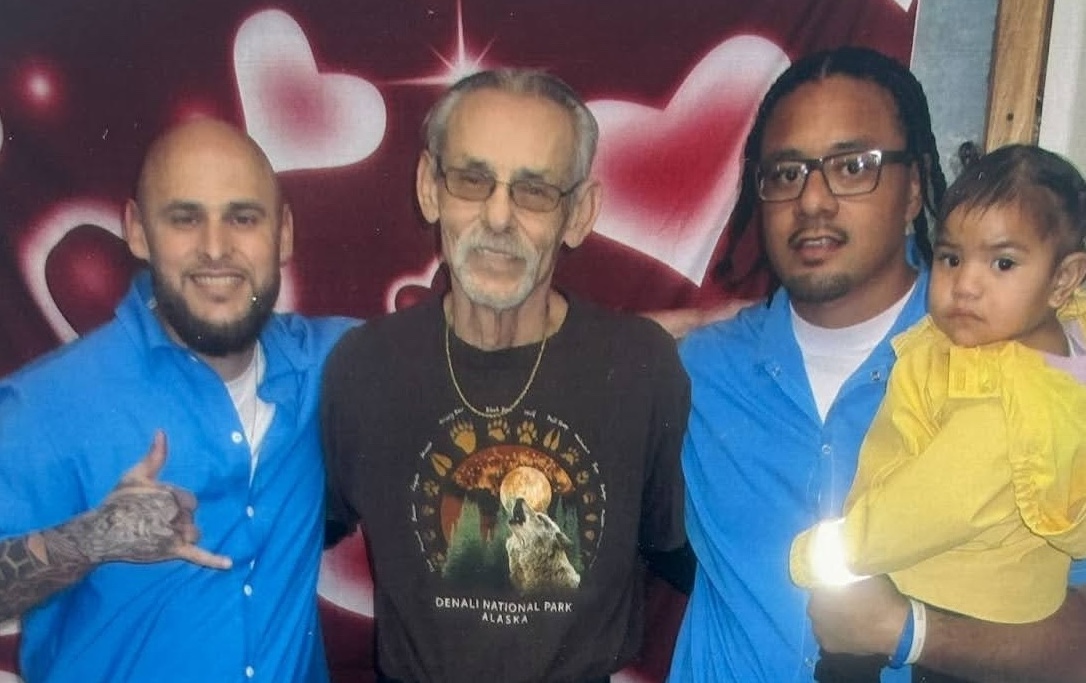I learned my letters by the light of a kerosene lamp when my family lived in a house my mother’s boyfriend built on a 1956 GMC truck bed. Glen was a short-tempered hash dealer. A good craftsman, but Glen was a shitty father figure. When my mother ended up marrying him, she signed us up for years of both physical and psychological abuse.
The first eight years of my life were spent on the road wandering the western U.S. I remember the Grand Canyon in Arizona and the sulfurous geysers of Yellowstone Park. There were adventures in the mountains and the woods—beautiful places filled with wildlife of feathers, fur, and scales. I even had the opportunity to explore the lava grounds of the Three Sisters Mountain Range in Oregon.
Glen was a restless man and angry. A drifter who only looked at the next petty-anti deal. For us, it was a hardscrabble, poverty-stricken existence. We moved from place to place, never setting down any roots. Yet despite the drifting, nomadic life, the bite of hunger, or Glen’s anger, somehow, because of the intelligent nature I was developing as a child being exposed to so much, seemed to be smoothed over. I had an Irish Setter named Reggie, my closest friend, and for a spare change, I sold shiny stones I’d found around the campgrounds that were home to me during those formative years of my earliest memories.
Loneliness shaped my imagination back then. A trait that even now elicits satisfaction in solitary life. I’d sing songs and make characters to keep me company as I explored natural playgrounds where I spent most of my childhood hours. Looking back, my family could be characterized as the “Hardlife.” All the lizard hunts, the fishing trips, and the hikes through the woods with a dog by my side were the most wondrous and awe-inspiring days of my life. In 1972, we stopped in a logging town named Beaver to see Glen’s friends.
In Washington, in the rain forests of the Pacific Northwest, it rained three hundred days out of the year for a six-year-old, which seemed like forever. My mother was tiring of the road and becoming increasingly intolerant of Glen’s intrepid lifestyle and mercurial moods. The plan was that Glen would try to get some work in the timber industry, and we would give settling down a try. My mother was waiting for her chance to give the guy the slip. She was a strong-willed woman with an agenda of her own; she had me and my brother to look after, and she was convinced that life on the road was no place to raise a family.
Beaver was green and wet, nestled amongst the dense evergreens along the peaceful shores of Lake Crescent. The heartbeat of the town was Smith’s Lumber Mill. It was populated by rough, hardworking folks who had a xenophobic attitude toward outsiders, especially long-haired types. It grew increasingly complex for my family to eat. Lack of providence a bitter man makes. It doesn’t seem like an original thought, yet if somebody has yet to say it, I’m saying it now.
Although Glen was a master wood craftsman (ironically, his last name was Carpenter), he couldn’t find steady employment. The tension in that small rolling home mounted between Glen and my mom. Sometimes, to escape my mom’s constant badgering, Glenn would go to nearby Forks (the town where the fictional tale of vampiric love called “Twilight” was set.) and take in a movie. Sometimes, he would take me with him.
There was no radio or television in the house truck, so it was there in that dark movie theater that I got my first dose of action cinema, watching blood-soaked classics such as Straw Dogs and The French Connection. I discovered that I loved the make-believe magic of the movies, the action, the mayhem, the drama. Films I saw back then still resonate with me today. I remember watching a Roy Shieder flick called The Sorcerer. The main character, Shieder, and a small group of miners try to transport a shipment of highly volatile nitroglycerin in the back of a rickety truck through a monsoon-ravaged South American jungle along a crumbling cliff-faced road. The suspense of that film was spell-binding.
My first foray into public schooling came when I was enrolled in Forks Elementary. I didn’t realize that my years living in the wilderness, drifting from place to place, profoundly affected me. This long-haired kid was a bit wild. I don’t say feral—that seems so crass—but I was hyperactive, and when the other kids took in my hair and shabby clothes and picked on me, I became a demonstrative dervish who had no problem standing up for myself.
I remember learning how to give somebody a finger righteously at Forks Elementary. This rebellion spilled over into me, filching change from the teacher’s purses during recess. It soon became apparent that I was a unique child with special needs. I got caught stealing and got my ass paddled by the principal. Then my school came to me in a box from then on. The courses were from a home study school called Calvert and were taught to me with a firm but fair hand by my mother. She had an unrelentingly nurturing way about how she taught me. She had a vision of what was to come for me in my life and knew the stakes. The world opened up to me at that small wooden table, and my wild mind began its journey into literacy.
When my mother read to me before bed, I was treated to all wonders: the absolute magic of what could be wrought with an author’s imagination. The fantastic worlds, the heroes, the villains. Animals that could speak, teach, and love. Enchanted lands like Where the Wild Things Are and where you could be if you didn’t behave. I fell in love listening to my mother reading the fires of my imagination, stoked by my journey into Tolkien’s Middle Earth and Carrol’s Wonderland. Once I began reading alone, I’d bury myself in a family friend’s comic book collection. The explosion of dynamic color I experienced in the adventures of Spiderman or Batman sparked my mind’s eye. I learned a distinct appreciation for visualization. During those times, the lessons she taught me and the attention she gave me, to this day, remain the most significant, most essential gifts ever bestowed upon me by anyone in my life. What I didn’t know was that she was giving me the tools to not only survive but, quite literally, the keys to my salvation. My expression in the arts came a few years later, in 1977.
We had relocated to a sleepy island town in the San Joaquin Delta in Northern California, and I was again attending public school. By then, my mother remarried, and there were now five of us boys. My parents worked: he labored in masonry; she was in the U.S. Steel Mill in Pittsburg. Supervision for me was scarce. I was headed for trouble. I shoplifted bubble gum from the local market and sold it on the school bus for a quarter a piece. I smoked cigarettes with the tough crowd, and since I was a long-haired white boy who went to school in a predominantly Mexican community, I got in my fair share of scraps.
In retrospect, I really can’t say if I was in trouble. Or if trouble was for me. All I can say with absolute certainty is that there were times that I acted out, and I frequently landed in the principal’s office to stay after school. Yet, once I did settle down in class, I did show potential by writing short stories about werewolves or dinosaurs and illustrating them myself. I remember acting in improv skits I’d made up and performing them during class assemblies with a couple of cuties considered a part of the “smart” circle.
I liked school. But I was restless, too. The exact adventurous nature that made me a young daredevil who once fell fifty feet from a rock in Carmel spilled over into those formative years when I attended Oakley Middle School. Even though I drew much-seeded satisfaction in my creativity, I still liked reading. I knew that when I wrote a story, a subtle knell deep inside me said, This is you; a schism in my psyche made me susceptible to the darker side of things. Was it genetic? Brain damage? Or the fact that I’d overdosed on Orange Sunshine L.S.D. 25 when I was six years old? I don’t know. I often ask myself this question: Where did my criminality come from? Why? I was athletic. Outgoing and willful. It should have been something. But I left the rails. I took all the gifts I was born with for granted and took on a life course that would eventually lead me to alcoholism, drug addiction, and prison.
Over the years, very nearly my entire adult life, I have been incarcerated. From the time I served in juvenile prison till the present, as a way to combat the depression or pain of separation, I read a lot. Sci-Fi or fantasy; crime or adventure. Horror. Lots of horror. I read something every day. Every once in a while, Twain will slip through the cracks, London or Stienback. Often, I’d pick up a book by one of the masters out of curiosity. But more often than not, the instant gratification would compel me to read stories of less literary gravity.
Occasionally, my natural inclination to write would bubble up through the tar pits of my immature resiliency. I’d write down an idea that I never would develop. The thing would make me feel good, but I never understood why. Writing for me wasn’t very important to me back then. It was too much work to spend time when I could be out playing softball or basketball in the yard. That’s the way prison was for me. I didn’t want it if I couldn’t have it right away. I was shallow. Arrogant. I existed on the surface, and my superficiality crippled me and killed anything good inside of me.
The true crime was that I never learned to care or love. Anything worthwhile, or would take discipline and hard work to achieve, was beyond me. I squandered everything. Bitterness and anger wrought by an emptiness that consumed my spirit disabled me in a way that no material possession, drug, or sexual exploit could sate. I was lost. Directionless. Bound for a perpetual cage. Or an early grave.
October 15, 2004, was the day I was struck out. I knew that the drugs and gun I was arrested for were going to cost me the rest of my life. I tied a sheet to the third bar of my cell door and tried to kill myself. I remember kicking and strangling- I was going out, down, into an all-consuming blackness that reached up to consume me. In that last second of life, a voice came to me in my head. Its tones were warm and extra. A stranger’s voice filled with compassion and understanding. I knew that in my current state, life in prison was more than I could handle and that opening itself up to this doomed soul was letting me in on a little secret. Telling me something that it knew beyond any inkling of doubt was the absolute truth. Bryan. The voice said. Don’t do this. Take yourself down from that noose. Clean yourself up. Walk the narrow path and work hard, and I promise you good things are in store for you, regardless of where you are.
I fought for my life. I won, although barely. I talked with a rasp for a while. I felt the pain. I slowly recovered from the drug addiction. I grappled with the multitude of negative repercussions after my arrest. The emotional devastation I caused the people who loved me the most. Those times were difficult—some of the hardest of my life. The near-death of my suicide attempt had opened up my eyes to shame, guilt, and remorse-sympathetic to the profound ripple effect that my actions had on others for the first time. I swore an oath that from that point forward, I’d spend all my time, every waking moment of my life, concentrating on being a better person.
I started writing.
With my wiring, I can transcend my imprisonment and reach out with it into other people’s lives, hopefully positively affecting them and writing from the heart about how things can change from the very worst into something worthwhile. When I sit here, it’s as if I want with all my heart to say that I am a good man and that this goodness that I feel is a result of my writing. It has changed who and what I am because the craft has shown me that I can do much more. Deep in my core reside the qualities that are worthy of redemption.
I remember a phone conversation I had with my mother in 2009. I was still in county jail, going through the court process. I’d just finished writing a crime thriller loosely based on my life titled, Collision Course, and I was pretty happy with it. I’d gotten a little write-up in a local paper about the book, and a cousin of mine who had some connections thought the manuscript had movie adaption potential. I recall feeling so peaceful and fulfilled—an insurmountable satisfaction.
My destiny seemed to shift beneath me, and I knew I could do more than just petty crime. I said into the phone that all I needed was representation and to seek the possibility of publication in some form. I just knew that in the act of writing, making what I referred to as “Popcorn” novels, there was a chance that the art I once had spurned could save me. My mother’s laugh was warm and all-knowing. She’s always been such a genuinely wise woman. Even when I refused to see it, save you? She said with a chuckle. Can’t you see, son? It already has.






